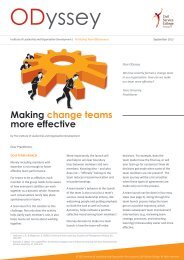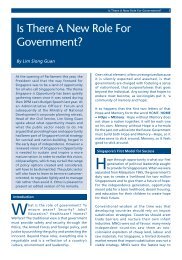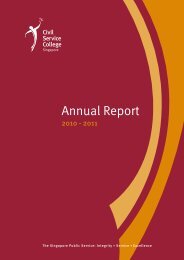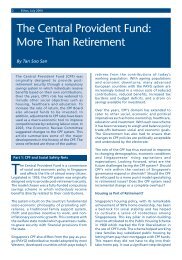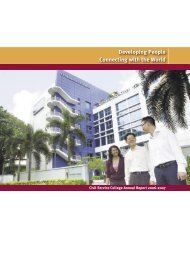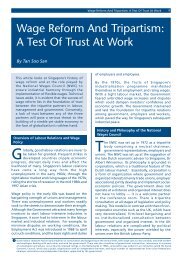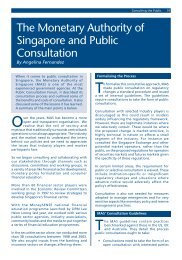The Singapore Public Service and National Development
The Singapore Public Service and National Development
The Singapore Public Service and National Development
You also want an ePaper? Increase the reach of your titles
YUMPU automatically turns print PDFs into web optimized ePapers that Google loves.
all underst<strong>and</strong> that one country’s success can never be replicated in full, unique as<br />
it is to the particular historical, geographic, economic, demographic <strong>and</strong> political<br />
context of that country, a better underst<strong>and</strong>ing of both <strong>Singapore</strong>’s successes <strong>and</strong><br />
challenges can indeed prove helpful to leaders in other countries seeking to<br />
institute public service reforms.<br />
I would like to highlight just a few of the main findings <strong>and</strong> conclusions of this<br />
study.<br />
1. <strong>The</strong> importance of the operational culture. <strong>The</strong> <strong>Singapore</strong> story clearly<br />
demonstrates that strong, competent <strong>and</strong> honest political <strong>and</strong> public service<br />
leadership engenders, inspires <strong>and</strong> motivates similar positive behaviour across the<br />
public service.<br />
2. Recognizing that good systems are not built in a day. <strong>The</strong> <strong>Singapore</strong><br />
<strong>Public</strong> <strong>Service</strong> has taken a comprehensive approach to development, over a long<br />
period of time.<br />
3. <strong>The</strong> sequencing of reforms matter. In the case of <strong>Singapore</strong>, the crucial<br />
first step was to reduce corruption by implementing comprehensive anti-corruption<br />
measures, so that the provision of public services would not be dependent on a<br />
person’s ability to bribe. <strong>Singapore</strong>’s anti-corruption strategy followed the classic<br />
prescription of raising the potential costs <strong>and</strong> lowering the potential benefits of<br />
engaging in corrupt behaviour. It is worth noting, however, that corruption was<br />
largely controlled by the end of the 1970s, whereas substantial improvements in<br />
salaries <strong>and</strong> working conditions would only be possible in the 1980s. In other<br />
words, corruption was brought under control well before salaries were increased<br />
which suggest that the success achieved by <strong>Singapore</strong> in controlling corruption<br />
can be replicated in countries that are not able to immediately raise public service<br />
salaries.<br />
6




